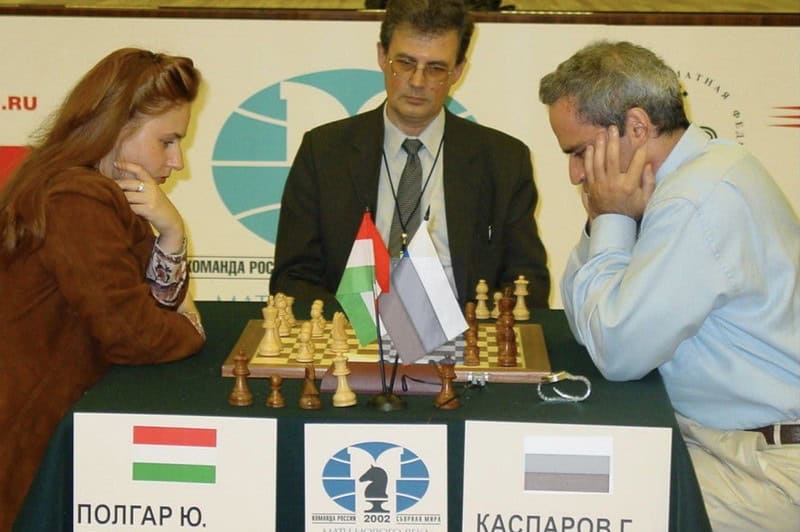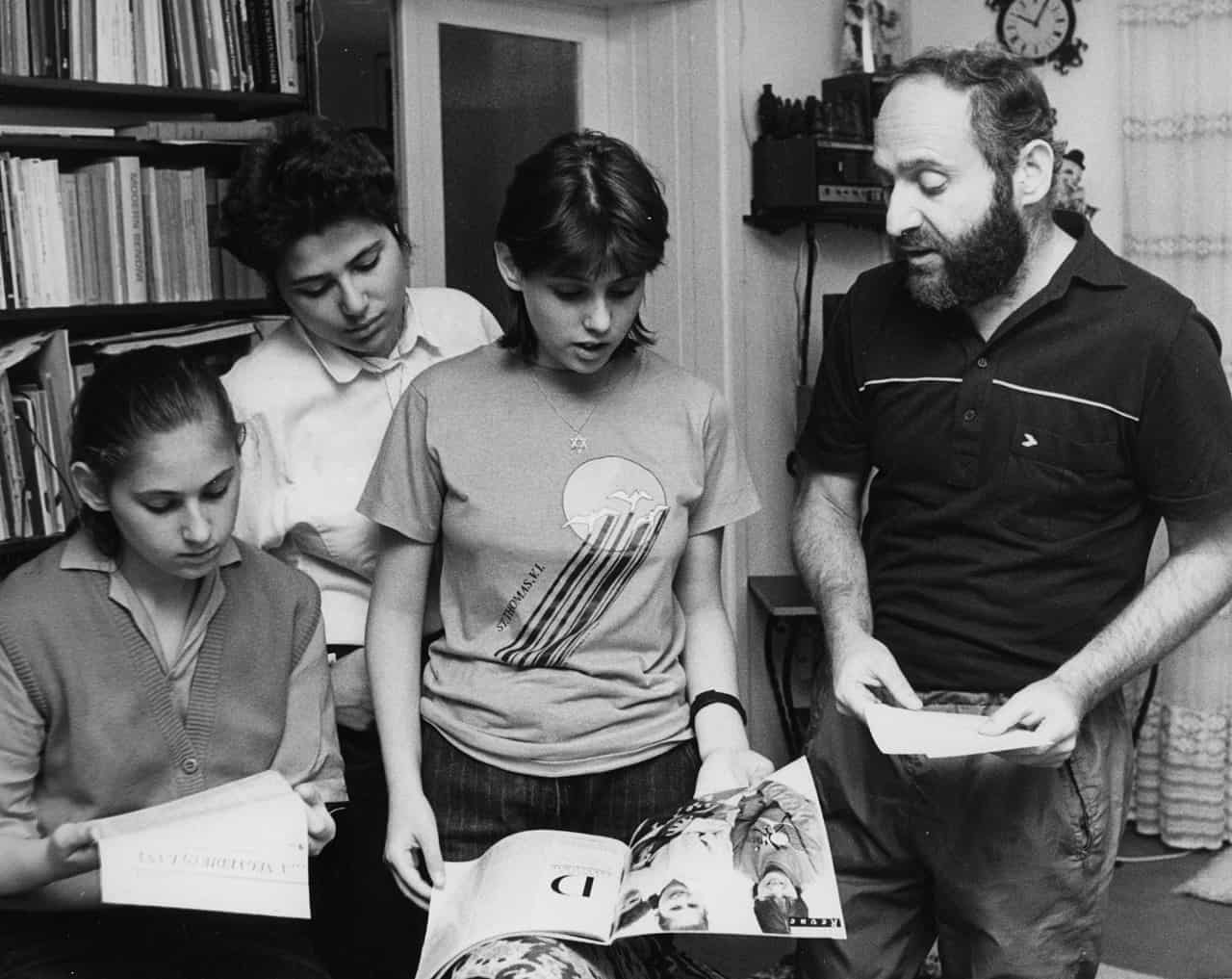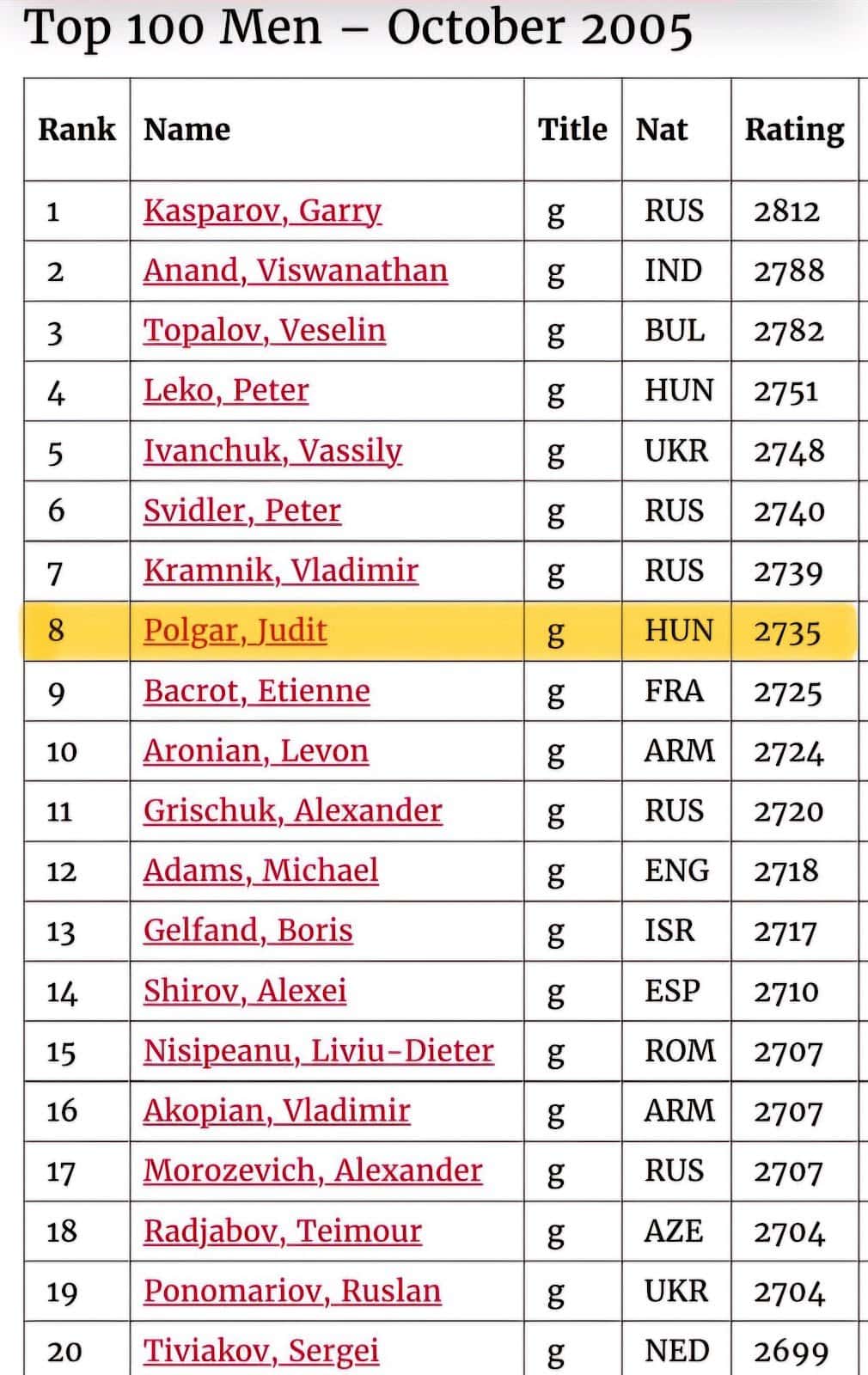Chess has seen its fair share of prodigies, but Judit Polgar wasn’t just a prodigy; she was a revolution.
Born in Budapest in 1976, Judit didn’t just break records; she redefined what was possible for women in chess.
Her fearless playing style, historic wins, and decision to compete exclusively in open events made her a trailblazer in every sense. If you thought you knew everything about her, THINK AGAIN.
In this article, we’ll examine what made Judit Polgar one of the most iconic chess players ever.
She Took Down Legends of The Game
Most chess players dream of beating a grandmaster one day. Judit Polgar accomplished that and more.
She did not defeat just any grandmasters; she took down giants like Garry Kasparov, Anatoly Karpov, and Boris Spassky.
Her most famous victory came against Kasparov in 2002 at the Russia vs. Rest of the World match in Moscow.

It was historic, not only because she won but also because she became the first woman ever to defeat the reigning World Champion in a rated game.
She played sharp, uncompromising chess and proved she was fearless at the highest level.
Judit Polgar Was Raised as an “Experiment Program”
Judit’s father, Laszlo Polgar, believed that “geniuses are made, not born.” He set out to prove this by homeschooling his daughters and training them intensively in chess.

The Polgar sisters, Susan, Sofia, and Judit, became a case study in focused, deliberate practice.
Judit, the youngest, was the standout. By the time she was 12, she was competing with and defeating experienced masters.
Her home environment wasn’t just nurturing, it was laser-focused on high-level achievement.
She Said No to Women’s Tournaments
Judit made a bold and consistent decision throughout her career: she rarely played in women-only tournaments.
She didn’t want to be the best female player; she wanted to be one of the best, period. And she was.
She also never competed in the Women’s World Championship. She famously said,
“I always say that women should have the self-confidence that they are as good as male players, but only if they are willing to work and take it seriously as much as male players.”
She climbed the ranks playing in open tournaments against the strongest male players in the world, ultimately reaching No. 8 in the world rankings in 2005, 77 points away from the top.
That’s the highest ranking ever achieved by a woman. She is also the only woman to have surpassed the 2700 Elo rating.

She Was Once the Youngest Grandmaster
At the age of 15 years and 4 months, Judit Polgar became the youngest grandmaster in history, surpassing Bobby Fischer’s record.
This was in 1991, and it wasn’t a fluke. She earned the title through three strong grandmaster-level performances, not via shortcuts or invites.
This record stood until 1994 when another prodigy broke it, but Judit’s name was already etched in history.
She Balanced Motherhood and Elite Chess
After becoming a mother, Judit didn’t vanish from elite chess, far from it.
She returned to the board and continued playing at a high level, even competing in the prestigious Chess Olympiad for Hungary and in top-tier invitationals.
Her ability to balance motherhood with a world-class chess career sent a powerful message to aspiring players, particularly women, about what’s possible.
She Changed How the World Sees Chess
Judit’s influence goes well beyond her rating. She made chess more exciting, especially for younger generations and women.
Her attacking style and fearless play helped shatter the stereotype that top-level chess had to be slow and mechanical.
She also redefined what it meant to be a role model in the sport. Players like Hou Yifan and current prodigies cite her as an inspiration, someone who didn’t just play chess but changed the cultural conversation around it.
Her Favorite Openings Will Surprise You
Judit had an aggressive style and wasn’t afraid to play openings that led to sharp, double-edged positions.
As Black, she often favored the Sicilian Defense and King’s Indian, both known for their tactical complexity.
As White, she experimented with 1.e4 and occasionally 1.d4, usually choosing systems that promised imbalance.
She played to win, not to neutralize. That mindset is reflected in her opening prep, which was built around dynamic, initiative-seeking play.
She Runs a Chess Festival Now
After retiring in 2014, Judit didn’t leave the chess world. She shifted gears into promoting the game through education and outreach.
Her most notable project is the Global Chess Festival in Budapest, which brings together players, educators, artists, and fans from around the world.
The festival’s slogan? “Chess connects us.” It reflects her belief that chess is a universal language with the power to bridge communities.
Final Thoughts: Judit Did More Than Win Games
Judit Polgar didn’t just succeed in a male-dominated field. She changed the way we think about gender, genius, and the game itself.
Her legacy isn’t just about who she beat but what she represented: excellence without excuses. She proved that you can rewrite the rules without ever compromising ambition or authenticity.
What you might not have known about Judit Polgar is that her biggest move wasn’t on the board; it was reshaping the board for everyone who came after her.







join the conversation